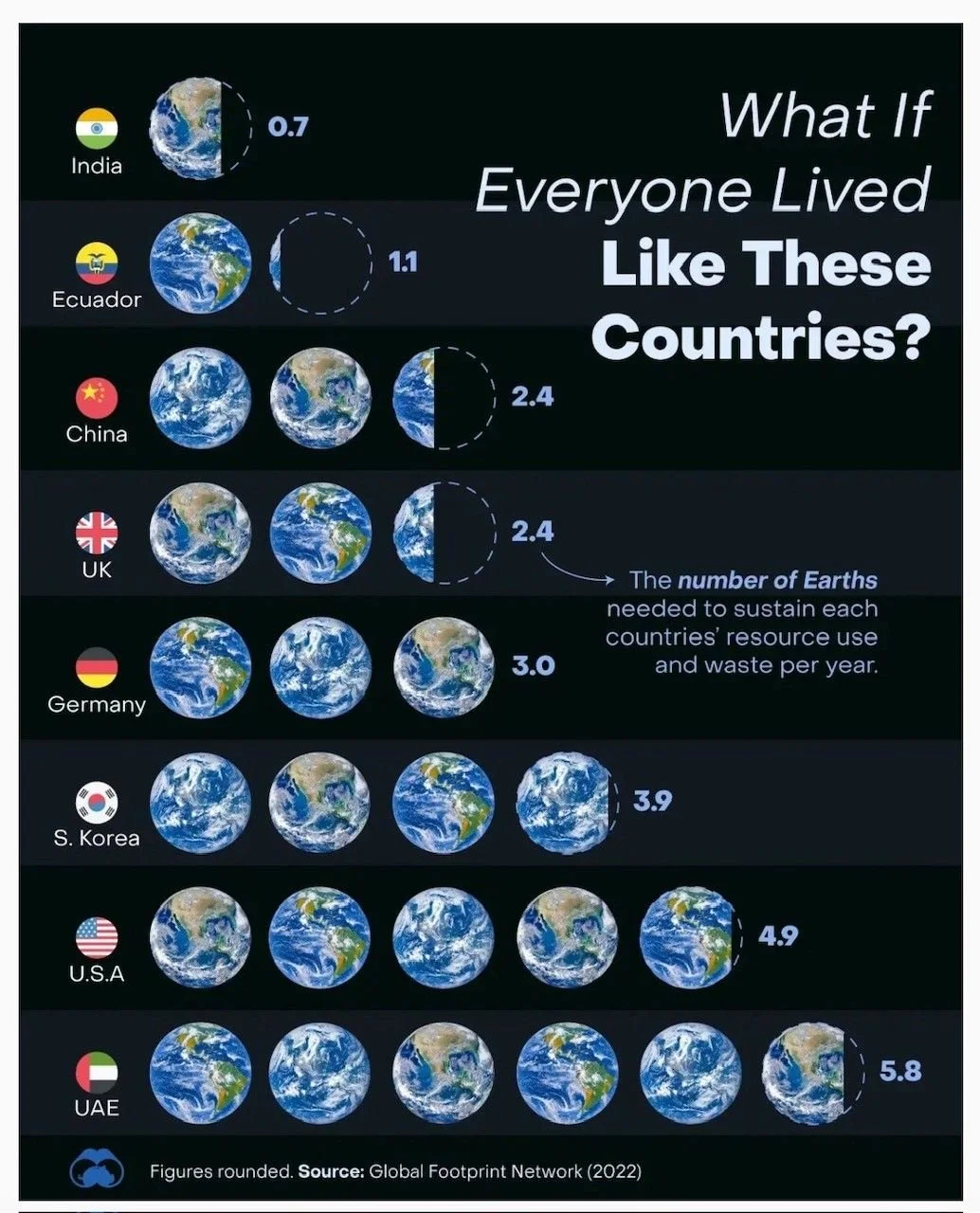Lessons from my Father
4 years, 10 months, 20 hours
21 September 2024
Earth Overshoot Day was on 1 August this year, which means after 7 months we had used up our annual allowance of the earth’s resources, and for the remainder of the year we are consuming more than the earth can regenerate.
It has been around that date each year for a decade, but that is hardly a cause of celebration because until it is back to 31 December, as it was the year I was born in 1970, we are living at the expense of our planet and plundering the wealth of future generations.
Over the last few weeks I have been spending a lot of time with my parents, because my mother has been ill. Happily she is now back home. But in the time I spent with my father, who is 89, I was repeatedly reminded that he comes from a generation that lived, and believed in living, as lightly as possible on the earth’s resources. His response to the energy crisis that followed Russia’s invasion of Ukraine was to ask why we couldn’t just suggest everyone turned the heating down and put on an extra jumper. The garage is full of old appliances, because, he told me, he can’t stand the idea of scrapping something if it might possibly be repaired. Every scrap of food that isn’t eaten seems to end up back in the fridge in the possibility it might be used the next day. To me these things all seem quite bonkers. But that’s the problem isn’t it? Somehow in the space of the 54 years since I was born we have moved from generations that were instinctively frugal to ones that are thoughtlessly wasteful.
Of course it isn’t the same in every country. But I fear that is only a matter of time. With thanks to Suneel Vora (PMP). I share the following visualisation of country data from the Global Footprint Network, which also calculates Earth Overshoot Day. It would be great that the country with the world’s biggest population, India, is only consuming their share of 0.7 earths, were it not that we know that is largely driven by a significant part of the population still living in relative poverty, and as living standards increase so consumption levels will rise until that country too starts to exceed its allowance.
So perhaps the greatest challenge of our time is not the rapid deployment of solutions for decarbonisation, but the change in mindset needed so that those of us who are fortunate enough to afford anything nonetheless choose only to consume what we absolutely need.

